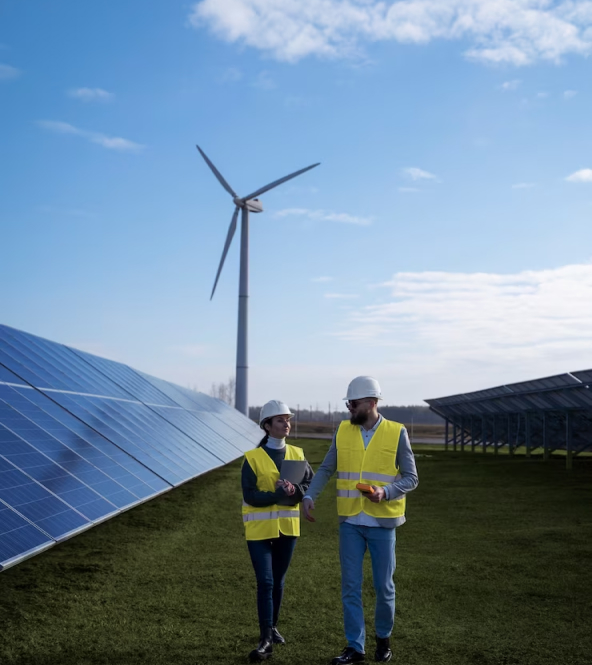Guide to Charging Electric Vehicle with Home Solar Power

With the surge in the interest and need for sustainable living, the sale of Electric Vehicles has observed a significant rise in Australia. Currently, around 3.39% of all vehicles sold in the country are EVs. Although shifting to electric vehicles will reduce the use of fossil fuels, it will eventually increase dependence on electric usage.
One of the effective methods to solve this issue is by charging EVs with solar panels. This way, you don’t have to pay heavy electric bills and can operate your EV with the surplus energy produced by the panels installed at your property.
But how can you charge EVs with solar panels, and doesn’t it take more time? Well, to answer all such questions, we have prepared this guide covering everything about charging electric vehicles with home solar power.
Can you charge EVs with solar panels at home?
You can effortlessly charge your EV with home solar panels, but it depends on various factors such as:
- Type of EV chargers
EV chargers come in different levels, each offering varying charging speeds. If you want to charge your EV faster, you need to check whether a level 2 EV charger will get supported with solar panels.
- Solar Panels Capacity
Solar Panel system installed at home comes in the range of 5kW-15kW. Depending on their capacity, you can determine whether they will generate enough electricity for essential appliances and charge EVs at home.
- Battery Capacity
Every electric vehicle has a different battery capacity, helping to determine how much power it will need to recharge completely.
- Travelling time and duration
How far and frequently do you drive? The answer to these questions will give you a basic idea of how much power your EV needs daily.
How to charge your EV with solar panels?
Charging your electric vehicles with residential solar panels is similar to charging your electrical devices like mobiles and laptops. The only difference is EV has a much bigger battery, taking more time than others.
If you don’t drive often, you can charge your EV with solar by simply using a portable plug-in charger during the day. This way, you can use the excess solar power produced by the panels, making your EV charging cost-effective.
But if you travel more frequently, you can install a dedicated solar EV charger at home. It will charge your EV three times faster than the other options during the day at peak hours.
How many solar panels do you need to charge your Electric Vehicle at home?
Your driving pattern and EV efficiency measured in kWh/km will help calculate the required number of solar panels for powering EVs.
Every Electric Vehicle has a different battery capacity ranging between 24kWh to 100kWh. And on average, 1 kWh of electricity provides a 5-8 km range.
If you drive around 50 km/day with a range of 6 km/kWh, you will need around 8kWh of energy.
Most EVs use around 1kWh of electricity to drive 6kms. Generally, a 1kW solar system (around 3 panels) generates 4kWh of electricity. So you will need to add 6 solar panels to your home to charge your EV.
What are the solar EV charging options for homes?
When we think about charging EVs with solar panels, the first thing that comes to our mind is EV chargers and their compatibility with residential solar panels. EV chargers come into three categories:
- Level 1: Basic portable 10 A plug-in charger, comes with Electric Vehicle
- Level 2: Dedicated Wall mounted charger installed at home or office
- Level 3: Big and fast charger available at roadside EV charging.
However, only the first two chargers work effectively with solar charging at home.
Types of solar EV chargers for home
-
Plug-in EV Charger
Most EVs come with a small portable EV charger that you can use with a 10 A electricity socket. It charges at the rate of 1.7kW to 2.0kW, adding around 10km to 14km per hour. So depending on the battery capacity, you can fully charge electric an car with solar in 24 – 36 hours.
-
Wall-mounted EV chargers
These are wall-mounted solar EV chargers, available in single-phase and three-phase options. Most single-phase EV Chargers are rated at 32 Amp, offering around 7.4kW of power that can add 40 to 50km/hour on a full charge. However, a single phase 7kW wall box charger requires 10 kW of the solar panel system and takes 8-10 hours to charge your electric vehicle completely.
Whereas a three-phase EV charger works three times faster at a 22 kW rate, adding around 120 to 150km per hour. So you can fully charge an average EV in a short period of 3 hours.
But to equip them with residential solar panels, you need to set the solar EV charger at a lower charge rate.
-
Combined Solar Inverter+ EV chargers
The latest technology of combined solar inverter and EV charger offers direct charging from residential solar panels. It works best when you add a solar system and EV charger simultaneously, saving you from spending on additional EV chargers and wires.
Conclusion
Charging your Electric Vehicles with home solar panels is cost-effective and environment friendly. But to do that, you need to know about various aspects like solar panels size, solar EV charger and driving pattern. We hope all the points mentioned in this guide will help with your EV charging.




